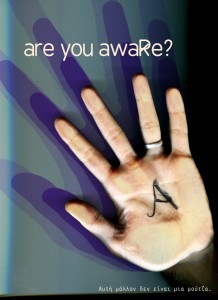 The Self Illusion: Why There is No ‘You’ Inside Your Head by Bruce M. Hood
The Self Illusion: Why There is No ‘You’ Inside Your Head by Bruce M. Hood
My rating: 3 of 5 stars
Found out about this book from the You Are Not So Smart podcast and read it on my Kindle.
It reeked of a mechanistic, sterile, matter-of-fact “you are your brain” worldview which I must admit I’m tired of and find boring, but I should have expected as much since You Are Not So Smart comes from pretty much the same mental place.
I don’t find fault with the idea that we don’t have an integral self; obviously, just like Bruce Hood thoroughly and with rich supporting bibliography demonstrates in this book, we’re largely shaped and influenced by our surroundings, our society and our biological limitations, first and foremost those of our brain. But that doesn’t mean that the notion of self is an illusion; rather, it means that the self is not a constant and that it is mutable. In fact, in which case would the self not be an illusion? When would we be in a position to say that the self is a real, concrete, quantifiable thing?
It seems to me that Mr. Hood’s proposition could have just as easily been called “The Soul Illusion”, for his assumption of what a self looks like–or should feel like–closely corresponds to our, for better or worse, highly intuitive notion of what a soul is: an immaterial cohesive agent between all of our experiences, thoughts and actions that creates a feeling of identity. In other words, the definition of the “me” in “I am me”. But is that what the self is, what it should be or all it can be? Is it possible to define what our selves are differently? In “I am me”, who would be the “I”? Who is the consciousness, like Eckhart Tolle would comment with his ultra-calm voice? Who is it–what is it–that reads this book and goes “huh, so I’m an illusion”? You might argue that the sense of self and consciousness are two separate things in order to question my qualms with the central point of the book; “precisely!”, I’d exclaim then, happy that you could intuitively grasp my point.
All that said, I’m giving The Self Illusion three stars instead of two because I must admit that it is well-researched, well-written and has plenty of interesting case studies of various psychological and psychiatrical disorders, “nature vs nurture”, sociological phenomena etc that do a good job of proving that the concept of self, or at least what Mr. Hood understands it to be, is an illusion insofar as it’s highly unpredictable and dependent on environmental and social factors. I particularly enjoyed reading about babies and how their brains develop and about conditions such as Tourette’s and how miming, laughing and facial expressions work in socialising and the development thereof. All this is interesting and rich from a clinical perspective, so it’s worth reading if you’re out to come closer to understanding how the human brain works–a task I personally believe to be impossible anyway. But if you’re not convinced that the brain is responsible for every little thing a person does, thinks, or thinks of doing, in view of the evidence that, contrary to what Mr. Hood quite often and emphatically repeats in the book, does exist, this book will provide little insight.




